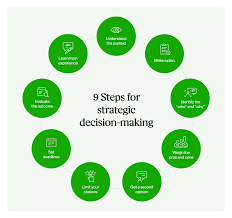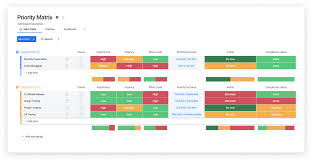The Importance of Ethical Decision Making Process
When faced with difficult decisions, it is crucial to consider the ethical implications of our choices. Ethical decision making process involves evaluating the moral principles and values that should guide our actions. By following a structured approach to ethical decision making, individuals and organizations can ensure that their choices are aligned with ethical standards and principles.
Steps in Ethical Decision Making Process:
- Identify the Issue: The first step in ethical decision making is to clearly identify the problem or issue at hand. This involves understanding the context in which the decision needs to be made and recognizing the ethical dilemmas involved.
- Gather Information: Once the issue is identified, it is important to gather all relevant information that may impact the decision. This includes considering different perspectives, potential consequences, and relevant ethical theories.
- Consider Stakeholders: It is essential to identify all stakeholders who may be affected by the decision. Understanding their interests and concerns can help in making a more informed and ethical choice.
- Evaluate Options: After gathering information and considering stakeholders, it is time to evaluate different options for addressing the issue. Each option should be assessed based on its alignment with ethical principles and values.
- Make a Decision: Once all options have been evaluated, a decision must be made. It is important to choose the option that best aligns with ethical standards and promotes positive outcomes for all stakeholders involved.
- Reflect on the Decision: After making a decision, it is crucial to reflect on the process and outcomes. This reflection can help in learning from past decisions and improving future ethical decision making processes.
The Benefits of Ethical Decision Making:
Ethical decision making process helps individuals and organizations uphold their integrity, build trust with stakeholders, and contribute to a positive work culture. By prioritizing ethics in decision making, we can create a more just and sustainable society where everyone’s rights are respected.
In conclusion, ethical decision making process is essential for ensuring that our choices align with moral principles and values. By following a structured approach to ethical decision making, we can make decisions that promote fairness, integrity, and respect for all individuals involved.
Seven Key Tips for Making Ethical Decisions: A Guide to Responsible and Value-Aligned Choices
- Consider the consequences of your actions on others
- Think about how your decision aligns with your values and principles
- Seek advice from trusted mentors or colleagues
- Ensure transparency and honesty in your decision-making process
- Take time to reflect on different perspectives before making a choice
- Be accountable for the outcomes of your decisions
- Continuously educate yourself on ethical standards and practices
Consider the consequences of your actions on others
When engaging in the ethical decision-making process, it is crucial to consider the consequences of your actions on others. By taking into account how your choices may impact different stakeholders, you can make more informed and ethical decisions. Understanding the potential outcomes of your actions allows you to weigh the benefits and risks involved, ultimately guiding you towards choices that prioritize the well-being and interests of all those affected. This consideration of consequences fosters a sense of responsibility and empathy, reinforcing the importance of ethical decision making in both personal and professional contexts.
Think about how your decision aligns with your values and principles
When considering how your decision aligns with your values and principles in the ethical decision making process, it is important to reflect on whether the choice you are making is in line with your personal beliefs and moral standards. By evaluating how your decision resonates with your values and principles, you can ensure that you are acting in a way that is consistent with what you hold dear and uphold integrity in your actions. This self-reflection can guide you towards making choices that are not only ethical but also reflective of who you are as an individual.
Seek advice from trusted mentors or colleagues
Seeking advice from trusted mentors or colleagues is a valuable tip in the ethical decision-making process. By consulting with individuals who have experience and wisdom in ethical matters, we can gain valuable insights and perspectives that can help us navigate complex ethical dilemmas more effectively. Trusted mentors and colleagues can provide guidance, offer different viewpoints, and challenge our assumptions, ultimately leading to more thoughtful and well-informed decisions that align with ethical standards and principles.
Ensure transparency and honesty in your decision-making process
Ensuring transparency and honesty in your decision-making process is crucial for upholding ethical standards. By being transparent about the factors influencing your decisions and honest about your intentions, you build trust with stakeholders and demonstrate integrity in your actions. Transparency allows others to understand the rationale behind your choices and promotes accountability. Honesty fosters open communication and helps prevent misunderstandings or conflicts that may arise from hidden agendas. By prioritizing transparency and honesty in your decision-making process, you contribute to a culture of ethical behavior and create a foundation of trust within your relationships and organization.
Take time to reflect on different perspectives before making a choice
Taking the time to reflect on different perspectives before making a choice is a crucial step in the ethical decision-making process. By considering various viewpoints and understanding the implications of each perspective, individuals can make more informed and thoughtful decisions. This practice helps in recognizing the complexity of ethical dilemmas and ensures that all relevant factors are taken into account before reaching a conclusion. Reflecting on different perspectives promotes empathy, critical thinking, and a deeper understanding of the ethical implications of our choices, ultimately leading to more ethical and responsible decision-making outcomes.
Be accountable for the outcomes of your decisions
Accountability is a fundamental aspect of the ethical decision-making process. Taking responsibility for the outcomes of our decisions means acknowledging the impact that our choices have on others and being willing to face the consequences, whether positive or negative. By being accountable for our decisions, we demonstrate integrity and a commitment to ethical behavior, fostering trust and respect in our relationships and communities. It is important to recognize that accountability is not just about owning up to mistakes but also about taking pride in the positive outcomes of our decisions, contributing to a culture of transparency and ethical leadership.
Continuously educate yourself on ethical standards and practices
Continuously educating yourself on ethical standards and practices is a crucial tip in the ethical decision-making process. By staying informed about evolving ethical principles and best practices, individuals and organizations can make more informed and responsible decisions. This ongoing education helps to build a strong foundation of ethical knowledge, enabling individuals to navigate complex ethical dilemmas with clarity and integrity. Embracing a commitment to lifelong learning in ethics not only enhances decision-making skills but also fosters a culture of transparency, trust, and ethical leadership.




